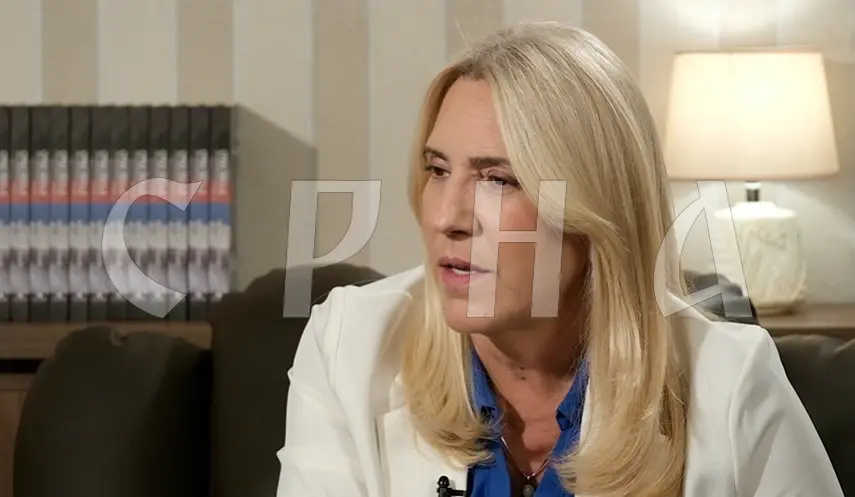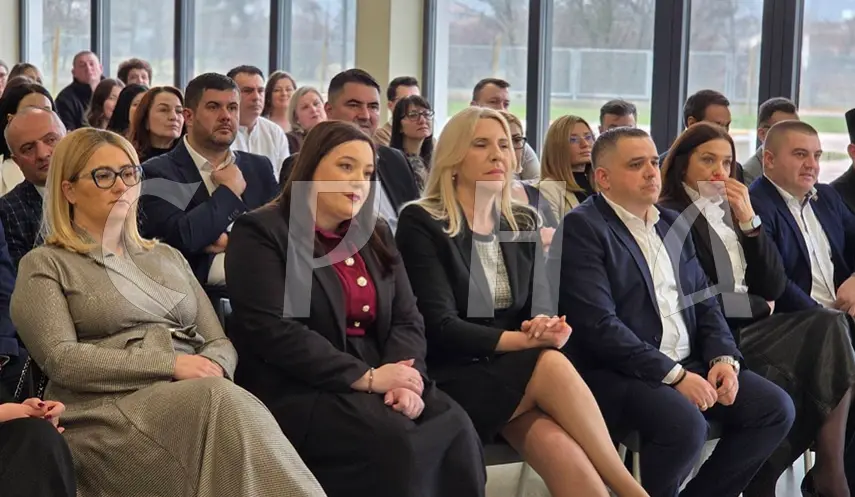SUFFERING OF SERBS MUST NOT BE FORGOTTEN, IT MUST BE WRITTEN IN TEXTBOOKS
Serbia - Culture of Remembrance - Vučević
08/03/2025
19:50

SREMSKI KARLOVCI, AUGUST 3 /SRNA/ – Advisor to the president of Serbia for regional issues Miloš Vučević says the suffering of Serbs in Republika Srpska Krajina during operations "Storm" and "Flash" must not be forgotten, emphasizing that everything the Serbs went through must be included in textbooks so the Serb people do not forget.
"It is not enough to commemorate this just once a year, young generations must learn about it. If we are a people worthy of the future – not the past, but the future – then we must not forget," Vučević told the press in Sremski Karlovci, ahead of the commemoration of the Day of Remembrance for killed and expelled Serbs in the criminal Operation Storm.
Vučević, who is also the leader of the SNS party, noted that "Flash" in early May 1995 was also criminal operation, when Croatian forces "cleansed" western Slavonia of the Serb people, and Krajina, too followed in early August.
"I am proud of those people who found their home here in Vojvodina and became an inseparable part of the community. I am especially proud that Serbia and Republika Srpska jointly commemorate all important dates and that we have reached a national consensus," Vučević said, adding that this joint commemoration is the result of the policies of Serbian President Aleksandar Vučić and Republika Srpska President Milorad Dodik.
Vučević says that Serbs do not want conflict with Croats, but rather the best possible relations, yet cannot remain deaf and blind when the suffering of the Serb people is celebrated.
He has noted that Serbia does not celebrate when Bosniaks mourn their losses in Srebrenica, and that Serbia remains silent on those occasions.
"But Croatia celebrates the expulsion of the Serb people from Krajina, who lived there for centuries, but was wiped out if erased with an eraser," Vučević said, reminding that former Croatian President Franjo Tuđman said at a Brijuni meeting on the eve of "Storm" that Serbs should be hit so hard that they vanish.
Vučević added that one must not forget the help Croatia got from NATO forces, which bombed Serb positions.
"We need peace, but we must understand the geopolitical circumstances," said Vučević, also pointing to attempts to take Kosovo and Metohija, the Raška region, and eventually Vojvodina from Serbia.
Vučević said that Serbia is a signatory of the Dayton Peace Agreement, which is part of the Constitution of BiH, therefore Serbia has not only the right but the obligation to speak on this agreement, as one of its guarantors of peace.
"Leaders in Sarajevo know this, they just pretend when they question what Serbia has to do with it," Vučević said.
The criminal Operation Storm began on August 4, 1995, with an offensive by the Croatian Army and Police, along with HVO units, in the areas of Banija, Lika, Kordun, and north Dalmatia.
The next day, August 5, Croatian forces entered the nearly abandoned town of Knin and raised the Croatian flag, while convoys of refugees were crossing Serb-controlled territories in BiH heading toward Serbia.
According to "Veritas", more than 220,000 Serbs were expelled during the Storm. 1,903 names are registered as killed or missing during and after the operation - of whom 1,247 /66%/ were civilians, around three-quarters of whom were over 60 years old.
The International Court of Justice, in its February 2015 verdict, classified Operation Storm as ethnic cleansing but not as genocide, although global experts in the field argue that the operation had all the elements of genocide.








